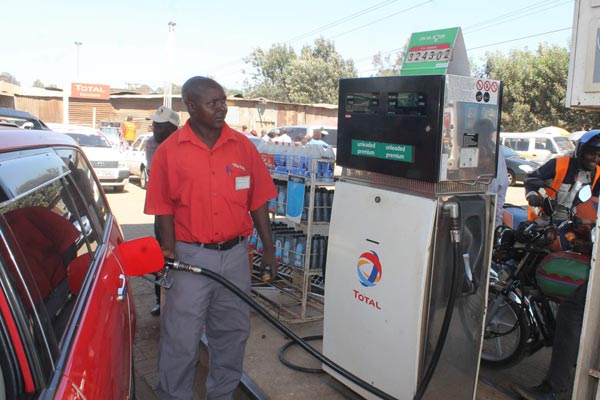Opening a petrol station in Kenya is a lucrative business venture, given the country’s growing demand for fuel and the increasing number of vehicles on the road. However, it is also a capital-intensive and highly regulated industry. To ensure success, one must navigate through various legal, financial, and logistical challenges. This guide provides a comprehensive overview of the steps and requirements involved in setting up a petrol station in Kenya.
1. Conduct Market Research and Feasibility Study
Before investing in a petrol station, it is essential to conduct thorough market research and a feasibility study. This process involves analyzing the demand for fuel in the area where you plan to set up the station, understanding the competition, and identifying potential challenges. Consider factors such as the location’s traffic flow, proximity to residential and commercial areas, and the presence of other fuel stations. A feasibility study will help you assess the profitability of the business and guide your investment decisions.
2. Secure Suitable Land
The location of your petrol station is critical to its success. You will need to secure land that is strategically located and meets the legal requirements for setting up a fuel station. The land should be accessible, preferably on a busy road with high traffic volume. Additionally, the land must be large enough to accommodate the petrol pumps, underground storage tanks, office space, and other facilities such as a convenience store or car wash. Ensure that the land is not within a residential area, as there are strict zoning laws that prohibit the establishment of petrol stations in certain areas.
3. Obtain Necessary Licenses and Permits
Opening a petrol station in Kenya requires obtaining several licenses and permits from various regulatory bodies. The Energy and Petroleum Regulatory Authority (EPRA) is the main body responsible for regulating the petroleum industry in Kenya. You will need to apply for a retail license from EPRA, which involves submitting detailed plans of the petrol station, proof of land ownership, and environmental impact assessments. Additionally, you will need approvals from the county government, the National Environmental Management Authority (NEMA), and the Directorate of Occupational Safety and Health Services (DOSHS). Obtaining these licenses and permits can be time-consuming, so it is advisable to start the process early.
4. Design and Construction of the Petrol Station
The design and construction of your petrol station must adhere to the standards set by EPRA and other relevant authorities. You will need to hire a qualified architect and contractor to design and build the station according to these specifications. The design should include provisions for safety features such as fire suppression systems, proper ventilation, and secure storage of fuel. The construction process involves the installation of underground storage tanks, fuel pumps, and other essential infrastructure. Regular inspections by EPRA and other regulatory bodies will ensure that the construction meets the required standards.
5. Sourcing and Installing Equipment
Once the construction is complete, you will need to source and install the necessary equipment for your petrol station. This includes fuel dispensers, underground storage tanks, fuel management systems, and point-of-sale (POS) systems. It is important to purchase high-quality equipment from reputable suppliers to ensure the safety and efficiency of your operations. Additionally, you may need to install other facilities such as air compressors, car wash equipment, and a convenience store, depending on the services you plan to offer.
6. Partnering with Oil Marketing Companies
To operate a petrol station in Kenya, you will need to partner with an oil marketing company (OMC) that will supply you with fuel. There are several OMCs in Kenya, including major brands such as TotalEnergies, Shell, and Rubis. Partnering with a well-established OMC can enhance the credibility of your station and attract more customers. The OMC will supply you with fuel and may also provide branding, marketing support, and training for your staff. It is important to negotiate favorable terms with the OMC to ensure that your business is profitable.
7. Hiring and Training Staff
The success of your petrol station depends largely on the quality of service you provide to your customers. Hiring and training competent staff is therefore crucial. You will need to hire attendants, cashiers, security personnel, and possibly a manager to oversee the day-to-day operations of the station. Training your staff on customer service, safety protocols, and fuel handling procedures is essential to ensuring that your station operates smoothly and safely. Additionally, regular training and refresher courses will help your staff stay updated on industry best practices.
8. Implementing Health and Safety Measures
Safety is a top priority in the petroleum industry, and your petrol station must comply with all health and safety regulations. This includes having fire extinguishers, first aid kits, and emergency response plans in place. Your staff should be trained on how to handle emergencies, such as fuel spills or fires, and regular safety drills should be conducted. Additionally, your station should have clear signage indicating safety procedures and warning signs. Ensuring that your petrol station adheres to safety standards will not only protect your employees and customers but also prevent costly accidents and liabilities.
9. Marketing and Promotion
Once your petrol station is operational, you will need to attract customers through effective marketing and promotion strategies. This can include advertising in local media, offering discounts and promotions, and participating in community events. Additionally, providing excellent customer service and maintaining a clean and well-maintained station can help you build a loyal customer base. Partnering with an OMC that offers loyalty programs or fuel cards can also enhance your station’s appeal to customers.
10. Managing Finances and Operations
Effective financial management is key to the success of your petrol station. You will need to keep accurate records of sales, expenses, and inventory to monitor the profitability of your business. Implementing a robust accounting system and regularly reviewing your financial statements will help you make informed decisions and identify areas for improvement. Additionally, managing your operations efficiently, such as maintaining equipment, scheduling staff, and monitoring fuel levels, will ensure that your station runs smoothly and meets customer demands.
Conclusion
Opening a petrol station in Kenya is a demanding but potentially rewarding business venture. By understanding and meeting the legal, financial, and operational requirements, you can establish a successful petrol station that serves the growing demand for fuel in the country. Careful planning, a strategic location, and a commitment to safety and customer service are essential components of a thriving petrol station business. With the right approach, your petrol station can become a valuable asset in Kenya’s vibrant economy.





